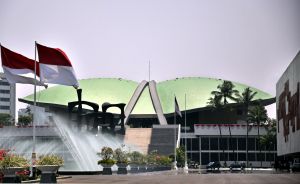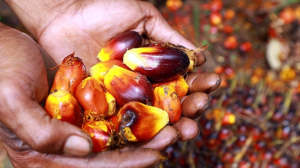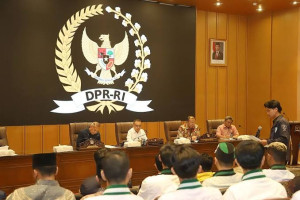Government relies on abundant natural resources to face 2023 global economic crisis
The government would rely on its abundant natural resources - especially coal and nickel - in facing the 2023 possible economic crisis despite the country's massive debts, a source within the government said. According to Bank Indonesia (BI), Indonesia's external debt was recorded at US$ 394.6 billion at the end of the third quarter of 2022.
"There is no need to be concerned [about repaying the debts]," the source told Indonesia Business Post on November 28, 2022.
Indonesia-investment.com reported in its World Economic Outlook that the International Monetary Fund (IMF) has warned that the global economy would continue to face steep challenges, particularly due to Russia invasion to Ukraine, a cost-of-living crisis caused by persistent and broadening inflationary pressures and the economic slowdown of the world’s second-biggest economy China. The IMF cuts its projection for global economic growth in 2023 from 2.9% year-on-year (yoy) to 2.7% (yoy). This implies that next year's slowdown is sharper than what had been expected earlier.
Natural resources as collaterals
The source said there was a study suggested that Indonesia might have trouble paying its debts when the global economic crisis strikes. The lenders - which mostly are advanced nations like Australia, the UK and the US - think that if they were in economic recession, they would request the debt repayments.
"However, lenders with large debts may be able to demand their money back immediately due to the recession, even if they do not receive profits or suffer losses," the source added.
In such situation, the source said Indonesia could use its abundant natural resources as collaterals. The archipelagic nation can swab the natural resources with other countries to pay for its debts for the lenders.
"For example, China highly values Indonesia natural resources such as coal, nickel, copper and fish. China may pay Indonesia's debts to a country like Australia first and then decide which natural resources that they want to take over," the source explained.
Citing an example, the source explained what had happened in 2000. At that time, to protect Indonesia from an economic recession, the government sold liquified natural gas (LNG) to the United States and Japan at a lower price. Then, Indonesia had an ample supply of LNG and natural gas, which were later consumed exclusively by Japan and the US. Therefore, Indonesia shipped all of its LNG to the US and Japan.
Optimism to face recession
Former BI governor Agus Martowardojo said he was upbeat about Indonesia's economy in 2023. He said the economy grew by 5.7% in the third quarter of 2022. The main challenge in 2022 is inflation. However, the government and local administrations can collaborate to maintain the inflation rate at a fair level.
"The challenge in 2023 will be the economic growth. I see that Indonesia economy can still grow well despite the prediction that the global economy will be under much pressure," he pointed out.
The ratio of Indonesia's total debt to the GDP so far is still under control. The number of government bonds hold by foreign investors is continuing to decline.
"It showed that the condition is getting better and well managed," Martowardojo added.
In 2023, all economic sectors will grow well. There are some economic sectors that should be concerned. However, as long as the government and state institutions, like the Financial Services Authority (OJK), can collaborate to respond to the situation with relaxation, stimulus and structuring, Martowardojo is optimistic that Indonesia economy will grow well in the future.
"The current phenomena of massive lay off are caused by three years of pandemic," he concluded.
Already have an account? Sign In
-
Start reading
Freemium
-
Monthly Subscription
20% OFF$29.75
$37.19/MonthCancel anytime
This offer is open to all new subscribers!
Subscribe now -
Yearly Subscription
33% OFF$228.13
$340.5/YearCancel anytime
This offer is open to all new subscribers!
Subscribe now







